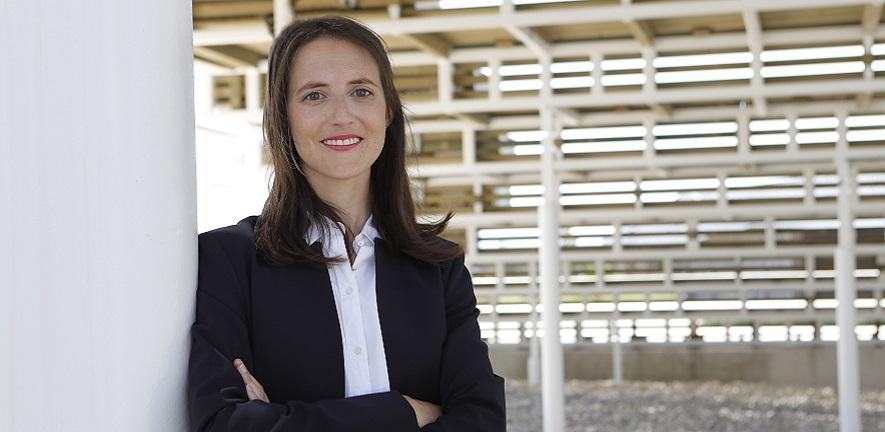
Date in FIBE: 2015-2020
Before joining FIBE:
Originally from Spain, I studied Civil Engineering at the Universitat Politècnica de Catalunya (UPC) in Barcelona through a National Scholar Award, a Nobel Bursary by the ‘National Society of High School Scholars’. I completed my fourth year of undergraduate study at the Laboratory of Hydraulic Constructions of the Swiss Federal Institute of Technology, Lausanne (EPFL), specialising in Hydraulic Engineering. It was therefore natural that my PhD research stemmed directly from an interest in environmentally-friendly solutions to improve the erosion performance of earth dams.
PhD thesis:
My PhD thesis, titled ‘Effect of Bacterial Strain on MICP and its Application for the Erosion Control of Fine Sands’ (2020), investigated the use of microbially induced calcium carbonate (CaCO3) precipitation (MICP) for the erosion control of sands, a recurring problem in earth dams and offshore geo-energy production. I combined fundamental investigations of microbial processes involved in the formation of calcium carbonates by soil-dwelling bacteria, and the characterisation and physical modelling of bio-geotechnical systems, to further our understanding of the relationship between mineral microstructure and the erosion response of carbonate cemented soils. As a result, we were able to establish that the CaCO3 mineral phase can be controlled through selection of a bacterial strain with appropriate ureolytic activity. The different mineral structures of the formed polymorphs explain the changes in behaviour observed when treatment utilises different bacterial strains and provides a route to optimising the treatment process for the desired performance.
Why did you join FIBE?
The MRes year gave me the time, and freedom, to explore different ideas and find a suitable PhD supervisor for my own research topic. The program’s focus on multidisciplinarity and industry exposure ultimately helped me create a PhD with a strong interdisciplinary breadth, with close synergies with industry, as well as other academics and researchers.
How did it help you?
My research is highly collaborative, and uses a multi-scale, multi-disciplinary approach to construct a coherent picture of the fundamental principles governing applications of bio-geo-materials in geo-energy, hazard mitigation, and construction technology. The FIBE CDT, within Cambridge, provided me with an encouraging and supportive academic platform to acquire the ‘explorer mindset’, vital to undertake rigorous science. I believe that only through such an approach can we create research that has a meaningful and positive impact in society.
What are you doing now?
After concluding my PhD, I moved to the Laboratory of Soil Mechanics at the Swiss Federal Institute of Technology, Lausanne (EPFL). There, I was part of the ERC-funded Bio-mediated Geo-material Strengthening (BIOGEOS) project. By collaborating with EPFL’s Soft Matter Laboratory and the Stream Biofilm and Ecosystem Research Laboratory, I developed drop-based processes to fabricate responsive capsules that enable the controlled release of MICP in porous media, while also advancing a new understanding of biomineralisation processes in hydrogel-hosted materials for the 3D printing of mineral composites.
I have recently been appointed as a Junior Research Fellow in Engineering by King’s College (Cambridge), effective October 2021. Being appointed Research Fellow provides me with an unrivalled opportunity to establish my independent research profile as a member of a multidisciplinary collegiate community. I will use this opportunity to exploit MICP as a sustainable and innovative bio-manufacturing process to enhance the thermal performance of ground-source heat pump heating/cooling systems and to substantially improve the rate of anthropogenic CO2 sequestration through mineral-trapping.
Contact:

